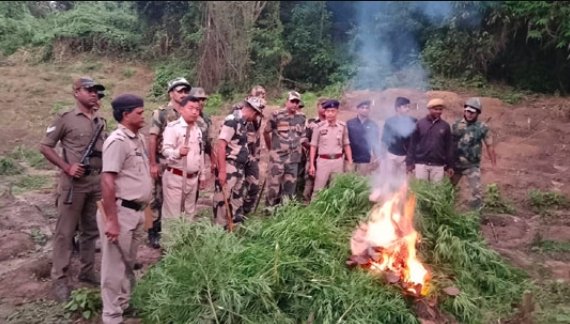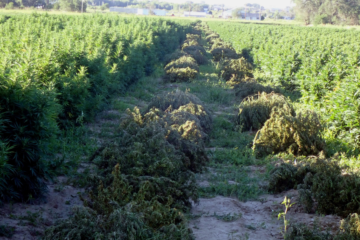The recent arrest of four journalists from Bastar, Chhattisgarh, for allegedly possessing 40 grams of cannabis has sparked widespread controversy and calls for a thorough investigation. The journalists, who were detained by the Andhra Pradesh police at the state border, have been accused of being framed by local authorities in collusion with the sand mafia. The case has drawn attention to the complex dynamics between law enforcement and media in regions plagued by illegal activities.
The Arrest and Allegations
On August 9, 2024, journalists Bappi Rai, Dharmendra Singh, Manish Singh, and Nishu Trivedi were stopped by the Andhra Pradesh police at the state border. The police claimed to have found 40 grams of cannabis in their vehicle, leading to their arrest under the Narcotic Drugs and Psychotropic Substances (NDPS) Act. The journalists were on their way to investigate alleged sand smuggling activities in the region when they were detained.
The arrest has been met with skepticism and outrage from the journalistic community. Local journalists and media organizations have alleged that the cannabis was planted in the journalists’ vehicle by police officers in collusion with the sand mafia. They argue that the arrest was an attempt to intimidate and silence the journalists, who were investigating illegal sand mining operations that have long been a source of corruption and violence in the region.

The Chhattisgarh police’s subsequent arrest of Konta police station in-charge Ajay Sonkar has added fuel to the fire. Sonkar was accused of tampering with CCTV footage from the hotel where the journalists stayed, allegedly to cover up his involvement in the case. His arrest has led to further demands for a comprehensive investigation into the incident.
Calls for a CBI Inquiry
In the wake of the arrests, journalists from Chhattisgarh, Andhra Pradesh, Telangana, and Odisha have united in demanding a Central Bureau of Investigation (CBI) inquiry into the matter. They argue that only an independent and impartial investigation can uncover the truth and ensure justice for the arrested journalists. The Bastar Zila Patrakar Sangh, a local journalists’ association, has been at the forefront of these demands, organizing protests and raising funds to support the legal defense of the detained journalists.
The protests have highlighted the dangerous conditions under which journalists in the region operate. Dharmendra Mahapatra, secretary of the Bastar Zila Patrakar Sangh, emphasized the need for solidarity and support for journalists who risk their lives to report on illegal activities and corruption. He pointed out that the arrested journalists are respected professionals with over a decade of experience in the field, known for their dedication to uncovering the truth.
The demand for a CBI inquiry has gained traction, with several prominent journalists and media organizations lending their support. They argue that the involvement of the sand mafia and the alleged collusion of local police officers necessitate an investigation by a central agency to ensure transparency and accountability.
The Broader Implications
The arrest of the four journalists and the subsequent controversy have broader implications for press freedom and the rule of law in India. The case has drawn attention to the challenges faced by journalists in regions affected by illegal activities and corruption. It underscores the need for stronger protections for journalists and greater accountability for law enforcement agencies.
The incident has also highlighted the pervasive influence of the sand mafia in the region. Illegal sand mining has long been a lucrative and dangerous enterprise, with powerful criminal networks often operating with impunity. The alleged involvement of local police officers in framing the journalists raises serious questions about the integrity of law enforcement in the region.
As the case unfolds, it will be a critical test of the Indian legal system’s ability to uphold justice and protect press freedom. The outcome of the investigation and the legal proceedings will have significant implications for the credibility of law enforcement agencies and the safety of journalists in India.



